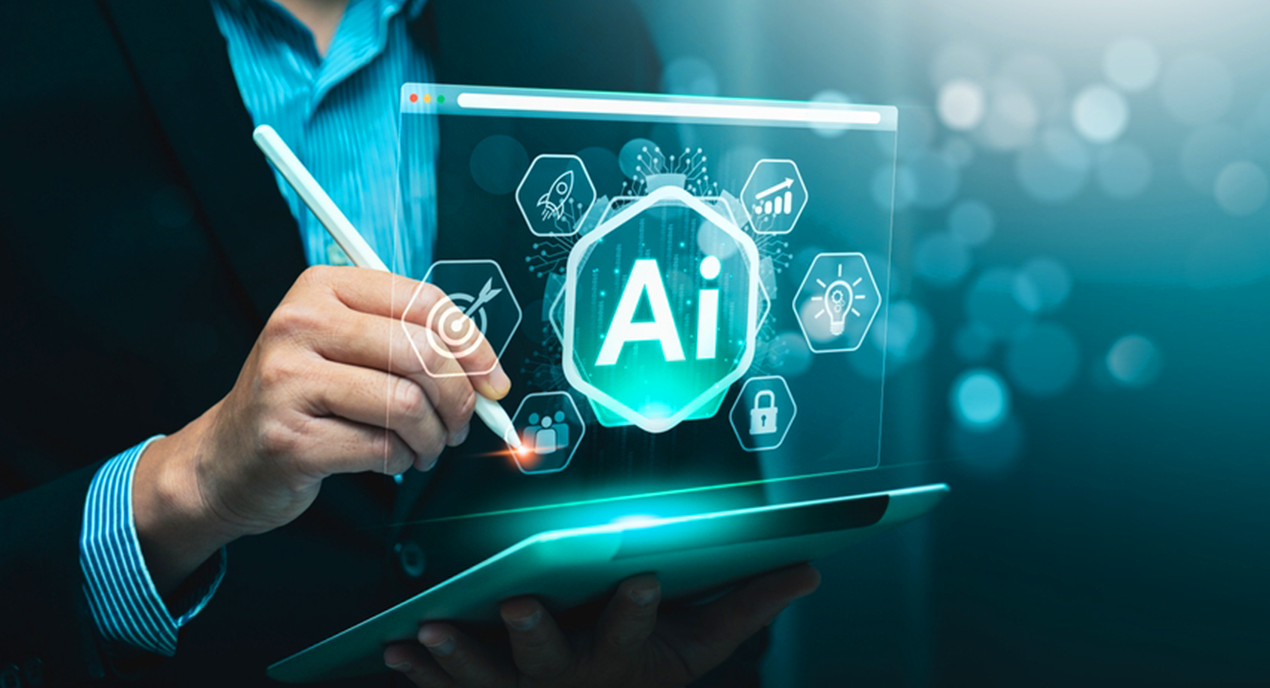Is it true that people still relate artificial intelligence (AI) to a Skynet-like dystopian overlord ready to destroy the world as we know it? Turns out, the tides have already shifted. According to a Harvard Business Review survey of 250 business leaders and executives, three-fourths of them believe AI is here to substantially change businesses and their processes. That was back in 2018; in 2024, we see these self-fulfilling prophecies see the light of day.
Even though ChatGPT made “AI” the talk of the dinner table back in 2022, the machine learning technology behind it has since become much more nuanced. We see companies increasingly using AI models, as apparent by their decision-making processes. AI is also used to streamline operations and optimize workflows. One of the key reasons AI is morphing business processes is its predictive analysis, which can accurately predict the trends for important future decision making.
There are many other ways AI is expected to revolutionize industries in the coming years. However, the following are five of some of the amazing trend shifts in businesses across the globe after the inclusion of artificial intelligence.
Automation of Business Decision Making
One of the most creative ways AI is changing businesses is helping executives come up with informed and date-relient decisions. Since we are talking about machine learning, these decisions are often fast, while lying deeply in real-time data, which is helping companies strengthen their positions in a much quicker fashion. For instance, retailers can predict inventory needs based on seasonal trends, and financial institutions can assess credit risks more accurately. The use of Rationale, a decision-making AI tool, allows companies to make data-driven decisions, optimizing operations and strategies based on real-time data.
We now have machine language-operated algorithms for pattern identification and trend correlations. The subtlety of such tools vastly surpass human capabilities to a marked degree. The incorporation of AI models can also help curb biases and subjectivity, particularly in fields of finance and healthcare, where objective truths dictate good decision making. Negation of biases also contribute to a proactive approach. Companies learn to be consistent against threats and opportunities alike, driving success in an increasingly fast-paced business environment.
Innovative Operational Efficiency
AI is also set to innovate business operations by making them more efficient and cost-effective. We see companies relying on AI tools for supply chain optimization and predictive maintenance. Using the power of predictive analyses, we can pinpoint the demand in real time, the inventory levels and logistics challenges. With the use of efficient AI models such as Robotic Process Automation (RPA), PEX Network and Zartis, your business operations are set to reduce risk management costs with an increasingly reliable supply chain among competitors.
In manufacturing businesses, AI-powered predictive maintenance systems monitor equipment in real time to predict potential failures before they occur. This proactive approach minimizes downtime, extends the life of machinery, and reduces maintenance costs. AI can also optimize production schedules and improve quality control, leading to higher productivity and better product quality.
AI solutions have the potential to optimize various other aspects of business operations. Other than the product operations, we can use AI to help with better automation of mundane tasks, streamlining processes and workflows. With the time that frees up, employees can focus on priority tasks, increasing productivity and cultivating a motivated work environment. In this way, executives can expect minimal error margins, effectively meeting customer demands and enhanced team culture.
Better Customer Experiences
While we talk about progressiveness in business operational efficiency, we cannot ignore personalization of customer experiences. As the saying goes, “Customers are never wrong,” AI models can help them achieve a degree above this general attitude.
We are seeing a growing marketing trend among businesses to analyze customer behavior and preferences. Businesses can now have a much better understanding of their consumer base, cultivating individual customer journeys to deliver targeted content, recommendations and better user engagement.
For instance, we are seeing ecommerce businesses getting the bulk of profit from customized products and services. Streaming services use AI to recommend shows and movies based on a user’s viewing history. E-commerce platforms suggest products tailored to a customer’s browsing and purchase history. This level of personalization enhances the customer experience and builds brand loyalty.
Fostering New Business Processes
If we focus on product-based businesses, AI models speed up product development through rapid prototyping and testing. Machine learning simulates scenarios and optimizes designs, cutting time and costs, especially in industries like automotive, aerospace, and pharmaceuticals.
AI fosters new business models, such as AI-as-a-Service (AIaaS), providing advanced AI capabilities without needing extensive in-house resources, which democratizes AI, enabling small and medium-sized enterprises to compete with larger corporations.
In Summary
Companies must comprehend the strengths and limitations of each technology and the specific tasks that each technology is capable of performing before they begin an AI initiative. For instance, robotic process automation and rule-based expert systems are transparent in their operations; however, they are incapable of learning and enhancing.
In contrast, deep learning excels at learning from vast quantities of labeled data; however, it is nearly impossible to comprehend the process by which it generates its models. This "black box" issue can be problematic in industries that are highly regulated, such as financial services, where regulators require an explanation for the manner in which decisions are made.










